As election looms, Aussie manufacturers reveal demands for sovereign capability
Gin makers turned out hand sanitiser, fast food packagers made face masks. Global crisis caught Australia unprepared, industry leaders say, and we need to make sure it doesn’t happen again.
Federal Election
Don't miss out on the headlines from Federal Election. Followed categories will be added to My News.
Australia must be able to stand on its own to survive times of global instability by increasing onshore manufacturing and emboldening sluggish universities, industry leaders have urged.
Industry heavyweights say the Covid-19 pandemic “exquisitely” exposed Australia’s inability to rely on itself, as the country was left without face masks, hand sanitisers and even lifesaving vaccines.
Industry leaders have also urged manufacturers to heed the example of R.M. Williams, and strive for gender equality in the workplace.
Russia’s invasion of Ukraine and the vicious conflict that has ensued has also lifted the veil on Australia’s weak oil supplies, as fuel prices sky rocket to well above $2 per litre.
Ahead of this year’s federal election, political leaders are being urged to focus on strengthening Australia’s sovereign capability by increasing onshore manufacturing, upskilling workers and closing the chasm between universities and companies.
Some industry leaders are also demanding the next federal government to appoint a senior minister for sovereign capability and launch a US President Joe Biden-style 100-day review of Australia’s supply chains for critical resources.
Earlier this month Prime Minister Scott Morrison flagged seven areas of importance to build onshore manufacturing, including semiconductors, personal protective equipment and pharmaceuticals.
Labor has promised to establish a $15bn national reconstruction fund aimed at building Australia’s self-reliance.
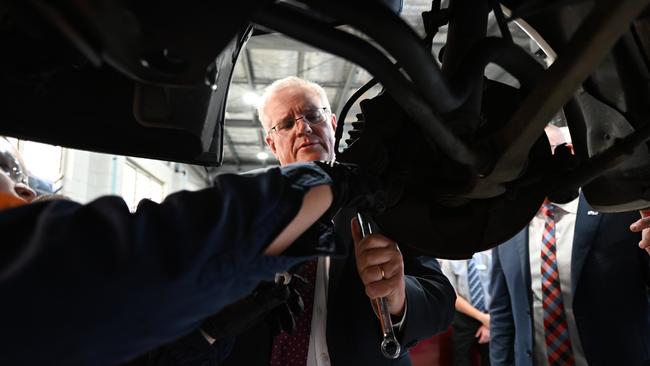
Weak sovereign capability
A sobering Flinders University report published in September last year revealed Australia’s dependence on imported goods was the highest in the developed world.
Australian Chamber of Commerce chief executive Andrew McKeller said last week Australia was facing its worst material shortage in almost 50 years, “leaving businesses in the lurch amid global supply chain issues”.
Australian Sovereign Capability Alliance head Martin Hamilton-Smith said Australia had been “caught out exquisitely in the Covid-19 pandemic” as it was left without face masks, hand sanitiser and even vaccines.
Gin distilleries were forced to produce sanitiser and fast-food packaging manufacturers started making surgical masks.
Australians are again feeling the effects of global supply chain disruptions, paying more than $2 a litre for petrol as war rages in Ukraine. Just 12 per cent of Australia’s raw oil is produced domestically.
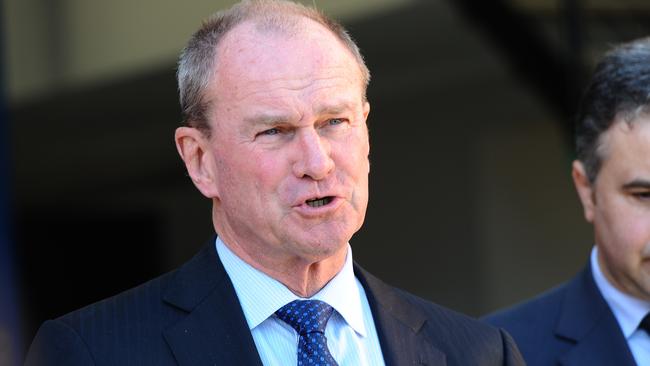
The solution
Heads of major manufacturing companies News Corp spoke to on the condition of anonymity say a comprehensive plan that outlines a vision to boost Australia’s sovereign capability and off-set the risks of global instability is needed.
Another urgent demand is to bridge the gaps that exist between manufacturers and universities, through a Swedish-style philosophy for innovation.
The “triple helix” model is a foreign term in Australia, yet it is widely known in Sweden, home to major global brands such as Electrolux, Ikea, H&M and Volvo.
It describes innovation that involves the government, industry and universities working in harmony.
The leader of a major advanced manufacturer wants to embolden often-sluggish universities to install academics in businesses to drive innovation from within, preventing unique Australian inventions from being made overseas.
There are also demands for Austrade to post representatives with extensive manufacturing and business experience in overseas trade offices, rather than career bureaucrats looking for their next adventure.
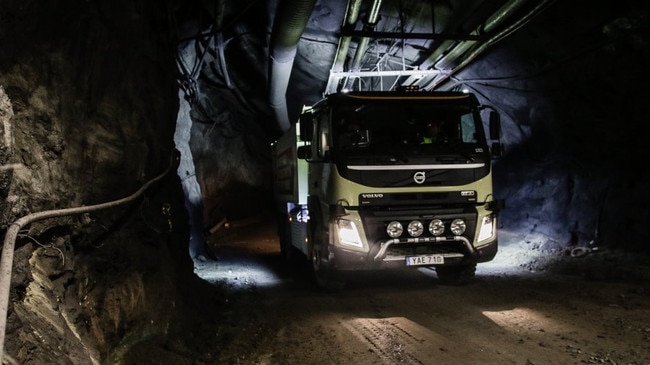
The Australian Manufacturing Workers Union has demanded more funding for TAFE across Australia to upskill future generations of manufacturers and stronger laws to protect workers against labour hire abuse.
Greater incentives to manufacture locally would be welcomed, but there’s a wide consensus any government intervention must be careful and laser-like to prevent massive industries from becoming inefficient and leaving taxpayers with a burden.
Mr Hamilton-Smith said the federal government must focus on the essentials: energy, medical equipment and defence.
‘We don’t need to produce bowls, we don’t need to produce T-shirts or whitegoods … because (the lack of) that is not going to bring the nation to a halt,” he said.
“If we can’t get petrol, that brings the country to a halt real quick.
“If we can’t get ammunition and spare parts for our submarines and warships, well we’ve got a problem.”
In its election policy statement, the Ai Group says the federal government must take charge of developing a circular economy, in which existing materials are leased, reused, refurbished and recycled for as long as possible.
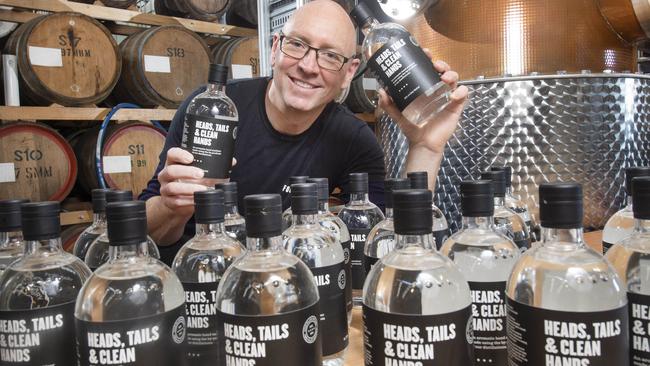
ANALYSIS
Boosting Australia’s self-reliance is, quite rightly, shaping up as a major election issue. Thankfully, for voters, both major parties have made genuine commitments to address the country’s worrying lack of sovereign capability.
This was brutally exposed during the Covid-19 pandemic, when face masks, hand sanitiser, and even vaccines, became rarer than Pink Star diamonds.
Gin distilleries started making hand sanitisers, while fast-food packaging companies produced surgical masks. Now, the war in Ukraine is driving up fuel prices because we produce so little of our own oil. And growing instability with China has placed unprecedented scrutiny on Australia’s defence procurement strategies.
The federal government has taken tangible strides in developing onshore manufacturing, particularly in hi-tech industries.
Labor’s list of commitments, including a national reconstruction fund, proves it is also serious. Whoever forms government come May, it’s vital they keep this momentum going in a bipartisan way, and maintain Prime Minister Scott Morrison’s commitment to address onshore manufacturing of seven key items, including computer chips, pharmaceuticals and PPE.
– Gabriel Polychronis
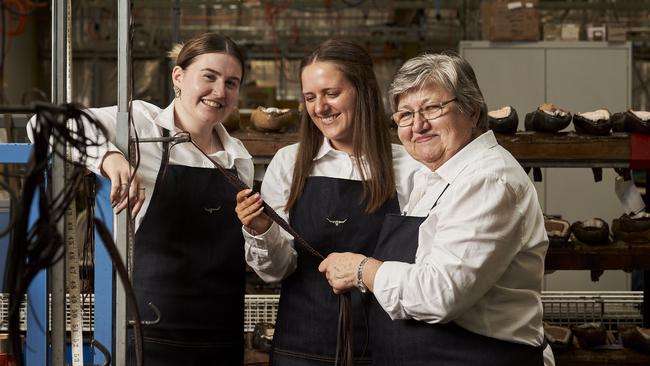
EQUALITY MEANS PRODUCTIVITY: INDUSTRY GROUP
A major manufacturing industry group has urged both major parties to strive for gender equality in Australian workplaces ahead of this year’s federal election.
In a pre-election policy statement, Ai Group has made a pitch for more accessible and flexible childcare for parents to boost the number of women employed in traditionally male-dominated sectors.
It has also called for a publicly-funded family and domestic violence leave payment.
“Workforce participation, particularly for women, assists in their economic wellbeing and independence, particularly later in life,” Ai Group said.
One Australian manufacturer leading the way is iconic bootmakers R.M. Williams, which employees 184 women at its South Australian workshop.
That is 46 per cent of its Salisbury South factory workforce.
One hundred of those women work in the footwear factory line, while 42 work in clothing and 25 in craft.
Marija Bisak, 73, has been a valued employee at the factory for 34 years, spending most of her time plaiting quality leather belts, becoming an expert on the complex craft, which she teaches to younger workers.
“The most rewarding thing about working in manufacturing is seeing the quality products that I make by hand being enjoyed by so many who purchase them,” she said.
“I absolutely think more women should consider a career in manufacturing in Australia but can appreciate that it is not for everyone.
“If you are willing to learn, there are people (in the industry) here excited to teach you.”
Billionaire mining magnate Andrew “Twiggy” Forrest bought R.M. Williams in October 2020 for a rumoured $190m, returning the renowned firm to Australian ownership.
Dr Forrest vowed to do everything possible to bring “RMs home” and become an “only Australian-made” brand”.
WHAT THEY’RE PROMISING
Labor
Allocate $15bn to establish a National Reconstruction Fund, $3bn of which would support renewables
Create a Future Made in Australia office, backed up by laws to support local industry seizing on government purchasing opportunities
Close the gap on key areas of skills shortages with new places at university and free TAFE places through the Future Made in Australia skills plan
Require that one in 10 jobs on major federally-funded infrastructure projects are given to apprentices, trainees or cadets.
Reduce electricity prices by 18 per cent in 2025 and 26 per cent in 2030 with Rewiring the Nation policy
Coalition
Continue the $1.5bn Modern Manufacturing Strategy, aimed at delivering affordable energy, research and innovation and building national resilience
Prioritise onshore manufacturing in key areas: semiconductors, agriculture chemicals, telecommunications equipment, plastics, pharmaceuticals and personal protective equipment
Allocate $2bn towards commercialising ideas in priority areas of economic need
Boost the Recycling Modernisation Fund by $60m to $250m, targeted at advanced recycling technology for “problematic plastics,” such as bread bags and chip packets
Inject more than $65m to slash red tape for Australian space companies





